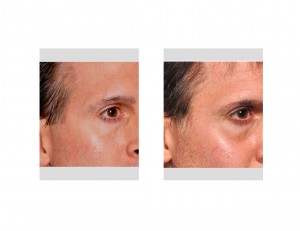
The following postoperative instructions for temporal implants are as follows:
1. Most temporal implant procedures have no discomfort. Patients usually only feel the need to use Tylenol or Ibuprofen for just a few days after the procedure, if any medication at all. You may also feel free to use ice packs on the temples for discomfort relief and swelling reduction the first night after surgery if you desire.
2. In all cases of temporal implants, there will be a circumferential wrap around the head for the first night after surgery. You may remove this wrap the day after surgery. It does not need to be used thereafter.
3. The sutures used in the incision in the temporal hairline will be dissolveable. There is NO need to apply antibiotic ointment on them. They require no topical care.
4. You may shower as normal the following day and you may wash your hair as normal 48 hours after surgery. There is no harm in getting the temporal suture lines wet.
5. Temporal implants may cause some swelling and bruising the eyelids or cheeks in some patients. You may was your face and apply make-up over any bruised areas the following day.
6. There are no limitations to any physical activities after temporal implant surgery. You may feel free to run, workout and do any non-contact sporting activity as soon as you feel comfortable.
7. You may eat and drink whatever you like right after surgery.
8. You may drive the next day after surgery when you feel comfortable and are not on any pain medication.
9. You may wear regular or sunglasses when the temporal swelling permits and it feels comfortable to do so.
10. If any temporal redness, increased tenderness or swelling, or incisional drainage develops after the first week of surgery, call Dr. Eppley and have your pharmacy number ready.


